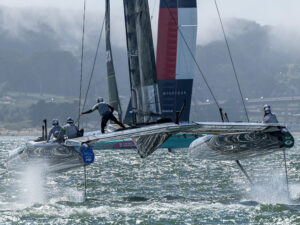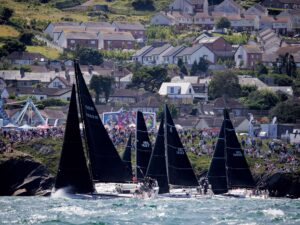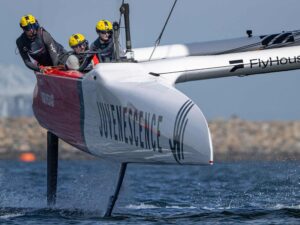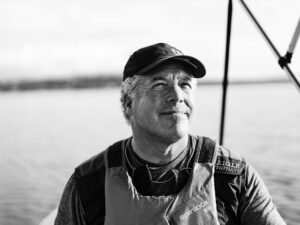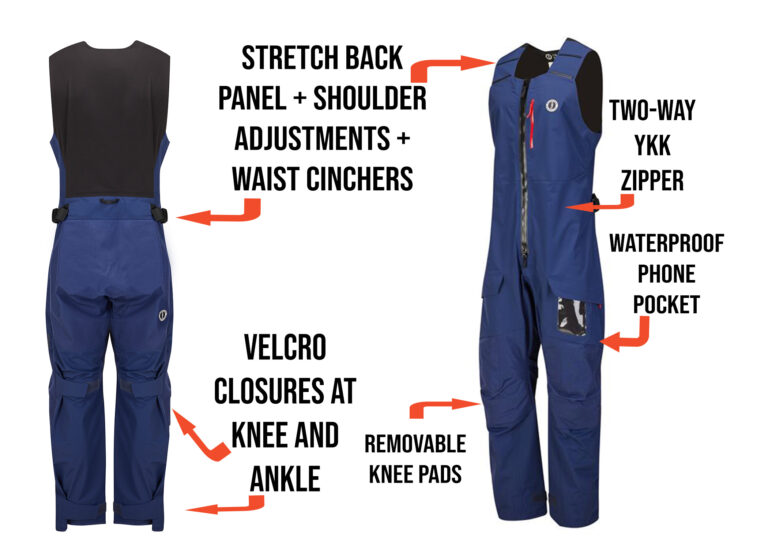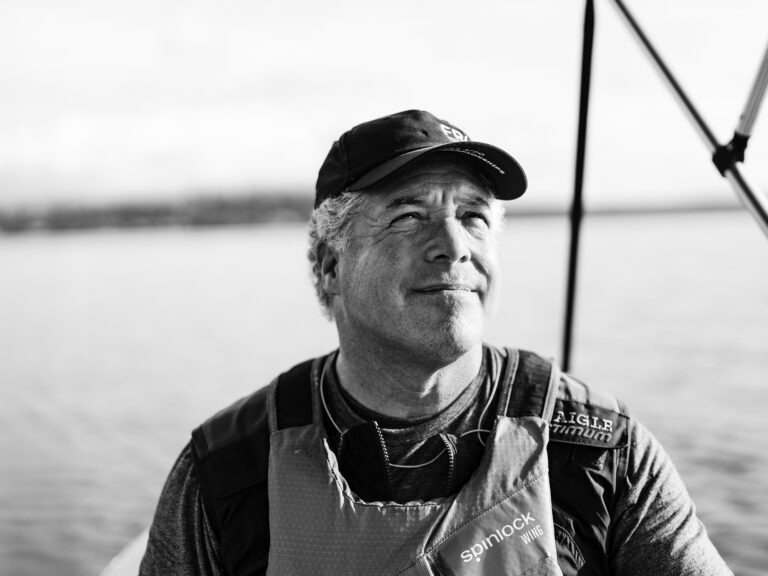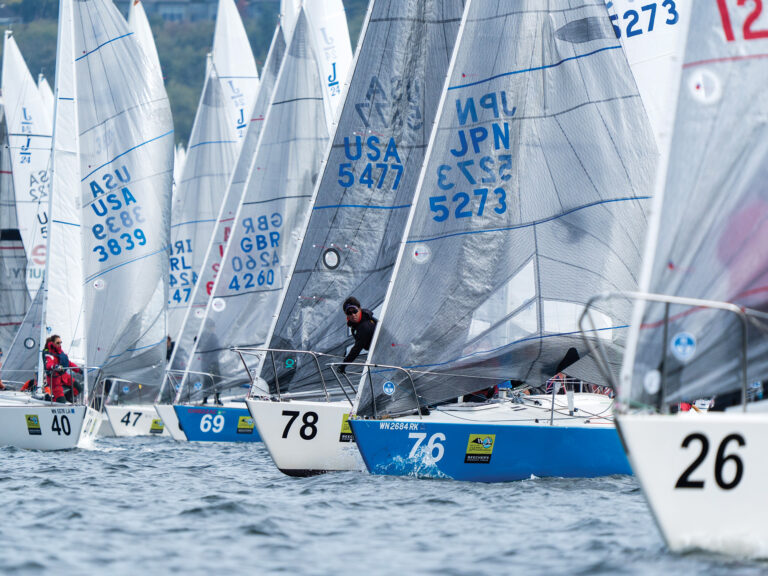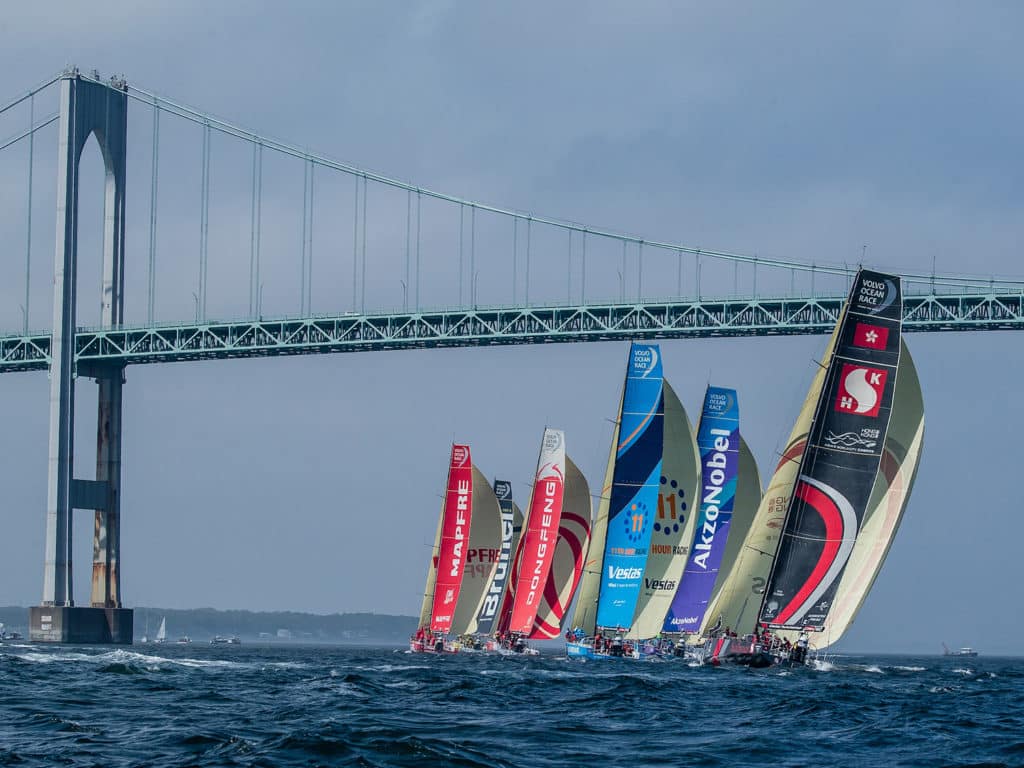
Sail Newport and The Ocean Race announced today that for the third consecutive edition of the competition, The Ocean Race will make its only North American stopover in Newport, Rhode Island, in the spring of 2022.
The Rhode Island stopover will be one of ten stops during the eight-month 38,000 nautical-mile race around the world, which begins in Alicante, Spain, in October of 2021 and finishes in Genoa, Italy in June of 2022.
“This is terrific news for our state, again bringing global attention to Newport and Rhode Island as premier tourist destinations and promising to generate tens of millions of dollars in spending and economic impact,” says Governor Gina M. Raimondo, Governor of the State of Rhode Island.
“I am grateful that The Ocean Race recognizes the value of coming back to the Ocean State and equally grateful to our partner and the official event host, Sail Newport, which has worked hard to ensure this successful event returns,” she adds.
Sail Newport, Rhode Island’s Public Sailing Center, will organize the event and Executive Director Brad Read says, “This is the pinnacle event of the sport of ocean racing. These athletes are spending 24 hours a day for weeks on end transiting oceans in storms and calms and as a community we have the privilege of welcoming them to the only stop in North America. Our entire community will greet them as we have greeted seafarers for generations. We will welcome them and celebrate the human victory of overcoming monumental challenge,”
“Newport remains an iconic venue for generations of sailors,” said Richard Brisius, Race Chairman of The Ocean Race. “It is a town built around the water, and people here hold the race close in their hearts, which makes it a stopover to look forward to for all of our sailors and stakeholders.
“When you walk through Fort Adams State Park and down the streets of Newport, you feel enthusiasm and passion for The Ocean Race, and that’s something we take pride in and want to return by bringing a great event to Fort Adams again in 2022,” he adds.
“Fort Adams State Park is the ideal venue to host sailors and fans from around the world and highlight Rhode Island’s extraordinary combination of history, natural beauty, wind, and world-class public parks,” says R.I. Department of Environmental Management (DEM) Director Janet Coit.
According to Read, the event had a wide-ranging economic and tourism impact on the community. Organizers released a detailed economic impact report that showed that the 2015 stopover generated an estimated $47.7 million to the Ocean State’s economy. Both events were huge draws for visitors, with over 137,000 people in the race village in 2015 and over 100,000 visitors in 2018.
“The Ocean Race is one of the three pillar events in the sport of sailing, alongside the Olympic Games and America’s Cup, and as such, it provides inspiration and motivation to sailors and sailing fans of all ages,” Brisius added.
“Even beyond that, The Ocean Race, along with Newport-based partners like 11th Hour Racing, demonstrates that sport can have an impact beyond the playing field. With a comprehensive and innovative sustainability program, together, we are leading the way in making a positive difference in our community,” he says.
The 2015 stopover in Newport marked the birth of the sustainability program for the global Ocean Race, an initiative that subsequently expanded to all stopovers in the 2017-18 race.
Coit adds, “The 2015 and 2018 race stopovers exemplified how to make large-scale, public events sustainable and also educated visitors about ocean health and the need to reduce the plastic pollution that fouls our seas. DEM looks forward to our partnership with The Ocean Race, Sail Newport, and all stakeholders in continuing to model green practices and confront environmental problems at the local, state, and global levels.”
During the 2018 stop, for example, at the Newport Ocean Summit, Rhode Island became the first state to sign the UN Environment Clean Seas Pledge, leading to a Governor’s task force on plastic pollution and a forthcoming state-wide ban on plastic bags.
Also, 14.8 tons of greenhouse gas emissions were avoided through the use of a biodiesel fuel blend for generators. At the same time, an alternative transportation campaign inspired 7,561 visitors to use bikes and water taxis instead of cars to visit the race village.
Charlie Enright (Bristol, RI), who grew up sailing locally on Narragansett Bay, has led teams in the past two editions of the event and has his sights set on taking on the challenge of a third race in the new, foiling IMOCA 60 class, with the support of 11th Hour Racing. He takes pride in seeing an event of international stature come to his hometown.
“The Ocean Race is a worldwide sporting event, and to host a stopover in Rhode Island is no small undertaking. I’d say it takes a village, but it certainly takes more than that,” Enright said.
“A successful event takes an active State Government that provides the infrastructure to host something like this. It means the City of Newport expanding its tourism season into late spring and the organization of Sail Newport – a small non-profit on Narragansett Bay – taking on the world,” Enright adds.
“It’s humbling and for me it’s a big point of passion and pride. It’s great to be sailing in and out of Newport, seeing all the spectators, and really having a home-field advantage in an event as international as this is a very special thing,” says Enright.
“At Sail Newport, we have seen the desire of the Rhode Island community to pitch in and help. The most emotional part of this event is watching our community embrace the race, the sailors and the excitement of the race village. That’s what keeps us coming back to host this international race,” Read says.

